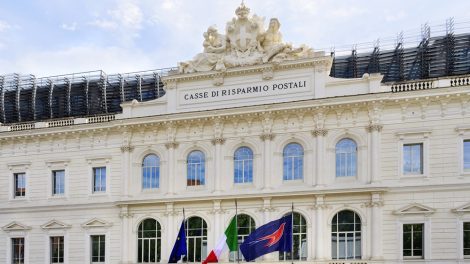Never waste a good crisis. As recently noted by IAI, energy security is now the chief concern for most Italians. It’s not a coincidence that energy bills feature prominently in the country-tailored Kremlin propaganda, which piggybacks on the energy crisis to push the idea that Italy should continue importing Russian natural gas (and oppose EU sanctions) to deal with high bills.
- The latest Political Capital report mapped and analysed the pro-Russian troll network in four European countries and studied how its messages adapted to the targeted audience.
- Arije Antinori, professor at Sapienza University and member of the European Observatory on Online Hatred, contributed from the Italian side.
- “This indicates that the harder the crisis will hit European households, the more likely it is that Russia will launch an information operation on the topic,” note the report’s authors.
Mapping the Kremlin’s infowar. Political Capital’s research assessed and analysed inauthentic Facebook activity related to external malign influence operations in Germany, Romania and Hungary, as well as Italy. This network “became identifiable through a specific pattern of behaviour, posting the same comments in different languages and locations.”
- The playbook is reminiscent of Russia’s leveraging of Covid-related, hot-button narratives – including vaccines and the Covid passport – to convey anti-system narratives that undermine the country’s social and political unity.
- The method, too, was familiar: a mixture of trolls (human operators) and bots (automated profiles) flooding social networks with pro-Russian content to spread narratives useful to the Kremlin.
- Crucially, however, these operators appear to have become more adept at tailoring the narrative elements, which are similar in all countries, to local audiences.
Putin’s megaphone. This infowar machine “is taking on an even larger role” with the war “because the Kremlin’s ‘official’ disinformation infrastructure has been hit hard by European sanctions on the RT and Sputnik propaganda channels”. As a further result, continue the authors, this apparatus can provide politicians and other influencers spouting disinformation narratives with an artificial positive feedback loop, giving the impression that their positions enjoy widespread support in the population.
- Crucially, the authors conclude, “mainstream media and politicians are essential to the success of trolls” since they can amplify the talking points of pro-Kremlin elites and vice-versa. A vicious circle of validation that risks impacting the unity of the Western front.
Bottom line. Mario Draghi’s inflexible Atlanticist line ensured his government’s resistance to pro-Kremlin actions. The new centre-right government, however, comprises public figures that have already lent themselves (unwittingly or otherwise) to amplifying pro-Russia propaganda narratives. It will be up to Giorgia Meloni to keep the rudder straight.





